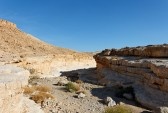Never before has this Scripture meant more to me: “And we know that in all things God works for the good of those who love Him, who have been called according to His purpose” (Romans 8:28 NIV). About twenty years ago God gave me the title for a book and I was given prophetic words…
Read moreSurprise! Unwrapping God’s Presence
God came to us as a stranger. Nobody expected to see the Messiah come in the way He came. God fulfilled the prophecies about Himself but not in ways anyone could grasp. Really, not even those closest to Jesus understood who He really was, not until after the resurrection. Even then the realization came slowly….
Read moreTHE GARDENS OF THE LORD
CHAPTER ONE: A GARDEN CALLED EDEN When God created the heavens and the earth, He made an especially beautiful, delightful place. He put a lot of thought into its design, its function, its beauty. He planned and dreamed about it with an expectant, loving heart. It turned out to be a paradise. It wasn’t…
Read moreWhy God Came
This is a love story. The answer to why God came to earth is at once simple and profound. Simple because it takes eyes of faith to see the truth. Profound because it takes eyes of love to see the depths of the matter. God came to earth to save us. But the manner and way He came is what won our hearts…
Read moreJesus Today – What is He up to? Is He in authority in heaven and on earth?
It’s been weeks since I blogged. I paused working on the new book Come and See, leaving off with the voice of Jesus during His first miracle that publicly began His reign as Sovereign over the earth. It was His first public act of supernatural authority. So extravagantly done, it was actually humorous of Him. With…
Read moreThe Extravagant Bridegroom (the story of Jesus’ first miracle)
As I promised, here is the next excerpt from the devotional book I’m working on titled COME AND SEE. In the future I hope to have a separate page for these excerpts, and I’ll let you know when it is in place. That way, you’ll be able to read all the chapters as I get…
Read moreLove and God’s Smiling Face — Reflections on the Life of Jesus
I can’t help but think about the love Jesus brought everywhere He went. This story is the next segment of the devotional eBook I’m working on making my way through the Gospel narratives of his life. In case you are new to this blog, the book is titled “Come and See” and this particular chapter…
Read moreWhat story might an angel tell us? (An excerpt from COME AND SEE)
This is an excerpt from the eBook I’m working on. For those of you reading each week, I’m making my way through the Gospel narratives of Jesus’ life. This is the next chronological event and is based on the truth of the Scriptures. It’s an imaginative, artistic rendering of Jesus to, hopefully, inspire hearts, and help us to apprehend new…
Read more



